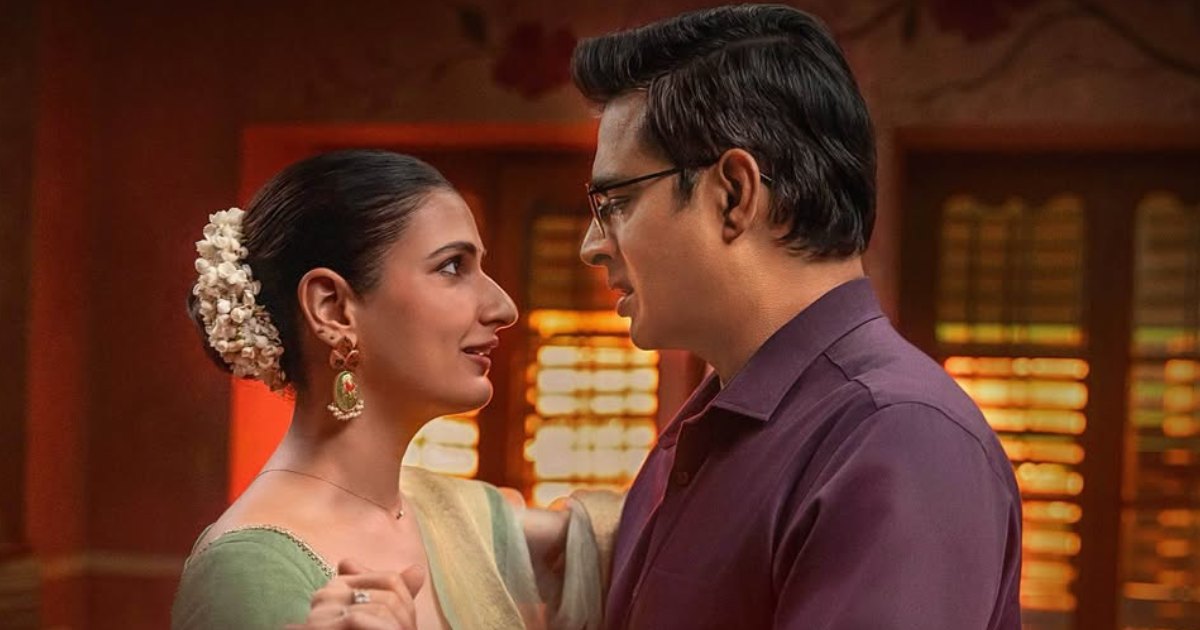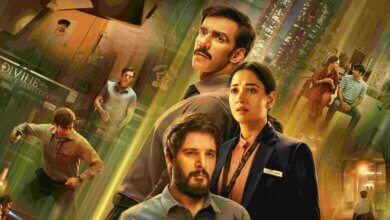Aap Jaisa Koi

Aap Jaisa Koi Movie Review: A Love Letter That Turns Into a Reality Check for the ‘Modern Patriarch
Rating: ★★★★☆ (4/5)
Available On: Netflix | Language: Hindi | Runtime: 1 hour 54 minutes
Cast: R Madhavan, Fatima Sana Shaikh, Ayesha Raza
Director: Vivek Soni
A Sincere Romance That Dares to Challenge Deep-Rooted Gender Norms
Aap Jaisa Koi isn’t just a love story. It’s a layered, introspective journey that begins with a whisper of affection and ends with a loud, uncomfortable question: Can love survive beneath the weight of silent patriarchy?
Set against the quiet charm of Jamshedpur and the chaotic beauty of Kolkata, the film gently peels back the layers of a man who believes he is progressive—until love exposes the truths he’s never confronted. What starts off like a heartfelt letter to companionship transforms into a scathing reflection on male entitlement and emotional immaturity.
The Story: When Romance Meets Reality
Shrirenu Tripathi (R Madhavan), a 42-year-old Sanskrit teacher and self-proclaimed modern man, lives a quiet, single life. When he meets Madhu (Fatima Sana Shaikh), a French teacher ten years younger, they strike a bond that blossoms into a relationship. But what begins with poetry and comfort takes a darker turn after they get engaged.
Shrirenu, once gentle and understanding, begins to reveal layers of patriarchal conditioning—he starts setting limits on Madhu’s freedom under the guise of love. And just like that, the film shifts from a romantic ode to a brutally honest confrontation with societal norms that men rarely even recognize in themselves.
Script & Themes: Subtle, Sincere, and Sometimes Unsettling
Jehan Handa and Radhika Anand’s writing is conversational, poetic, and refreshingly modern. It doesn’t preach feminism. Instead, it shows us how quietly patriarchy can lurk within the most well-meaning partners.
The film doesn’t shy away from showing how love can get tangled in control and ego. It challenges the idea of a “good man” who believes in equality, but only up to the point where his comfort isn’t threatened.
Vivek Soni brings back his flair for textured storytelling (as seen in Meenakshi Sundareshwar), but here, the emotions are more raw, more urgent. The plot’s twist involving a sex-chatting app raises bigger questions—about women’s agency, privacy, and why even consensual freedom is policed in love.
Performances: Controlled, Convincing, and Complex
R Madhavan delivers one of his most nuanced performances in recent times. He brings charm, but also discomfort—precisely because he embodies that “relatable nice guy” who doesn’t realize when love turns into ownership. His breakdown is quietly devastating.
Fatima Sana Shaikh is fire and grace rolled into one. As Madhu, she’s vibrant, vulnerable, and quietly assertive. Her emotional outburst—“Aap bhi baakiyon jaise hi nikle”—stays with you long after the credits roll.
Ayesha Raza is the film’s conscience. As the sister-in-law, she delivers a monologue on emotional invisibility in marriage that is both haunting and profound: “Teen time ki dawai aur khana mil jaaye toh aapka dhyaan bhi nahi jaayega ki hum nahi hain.”
The supporting cast adds richness without ever distracting from the central narrative.
Direction & Music: Old-School Soul with a Modern Edge
Vivek Soni directs the film like he’s writing a love letter. Every scene feels intentional—never rushed, never forced. The film’s aesthetics are subtle, like the quiet corners of a diary entry or an unsent message.
Soni’s storytelling is emotional, restrained, and deliberately non-dramatic. The moments of conflict aren’t loud—they’re uncomfortable. They make you squirm. And that’s where the power lies.
Amit Trivedi’s music deserves its own review. Each song is a chapter in the love story, complementing the emotional beats with poetry and texture. The tracks don’t interrupt the flow—they amplify it.
Final Verdict: Love, Letters & The Lies We Tell Ourselves
Aap Jaisa Koi starts like a lullaby and ends like a wake-up call. It’s tender yet jarring, romantic yet critical, hopeful yet brutally honest. The film makes you fall in love and then shakes you out of it—leaving you unsure whether to hold on or walk away.
Its biggest success is that it doesn’t offer neat conclusions. It acknowledges the mess, the discomfort, the emotional weight women carry in love—and how difficult it is for men to even see it, let alone change it.
This isn’t a film that panders. It’s a film that demands reflection. It leaves you questioning your own definitions of love, respect, and equality. And for that, Aap Jaisa Koi isn’t just worth watching—it’s worth thinking about.
FAQs
Q. Is Aap Jaisa Koi a typical romance?
No. It begins as one but evolves into a deeper story about gender roles and emotional truth in relationships.
Q. Is it feminist?
It doesn’t wear the label loudly, but yes—its soul is rooted in challenging quiet, everyday patriarchy.
Q. Who stands out in the film?
All three leads are strong, but Ayesha Raza’s monologue and Fatima’s layered performance are particularly moving.
Q. Is it slow-paced?
It’s deliberately measured, but emotionally engaging. It asks you to lean in and listen.
Q. Does it resolve the patriarchy angle well?
Not entirely. The film sparks necessary conversations but leaves some moral ambiguity, which might frustrate or fascinate you—depending on your lens.








